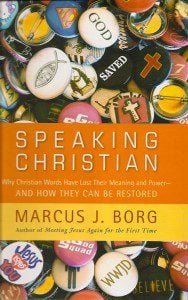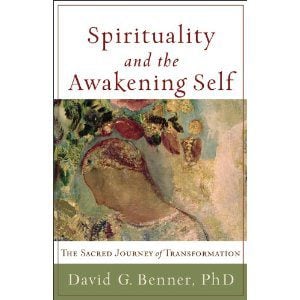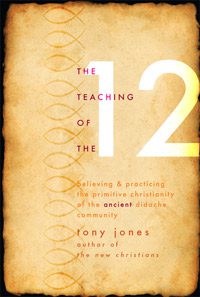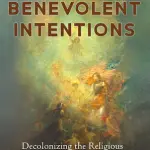The introductory post to this blog series is available here.
The highlights from Bass’ three lectures are available here, here, and here.
Borg’s first two lectures are here and here.
My musings on the lectures are in brackets.
Marcus Borg’s third and final lecture was titled:
Reclaiming Christian Language:
Compassion and Justice
Mercy vs. Compassion
- The problem with choosing to translate the Greek word as “mercy” is that “mercy/merciful” presuppose both an authority figure and a wrongdoer or victim. The former has the power to punish or harm, but may decide to be lenient. So the latter pleads for mercy. Note how this understanding fits the ‘Heaven-and-Hell Christianity’ framework: our problem is disobedience and we deserve to be punished, but we appeal to God for mercy [see Borg’s first lecture]
- A better translation of this Greek word in modern English is “compassion”: feeling the feelings of another (including the suffering of others), and acting in accord with those feelings:
- Mark 10: the blind beggar cries out to Jesus, “Have compassion on me” (NOT mercy).
- Luke 10: The Good Samaritan was the one who showed compassion (NOT mercy).
- Luke 6:36, “Be compassionate as God is compassionate.” [see Karen Armstrong’s Charter for Compassion as well as her recent book Twelve Steps to a Compassionate Life.]
Righteousness vs. Justice
- Does “He or she is full of righteousness” make you want to meet a person? Or do you assume that righteous person is likely overly-anal, moralistic, priggish, holier-than-thou, and stiff with rectitude. Will Rogers spoke of a man that was “so righteousness that he was no damn good!”
- Righteousness in the Bible often refers to justice. One meaning of justice is punitive/retributive (for example, the Hall of Justice or Justice Department). In the Bible, the more common meaning of justice is distributive/restorative/economic/social justice, which inquires as to whether societies/cultures/systems/institutions are just, fair, and equitable. [For an accessible introduction to this alternative, biblical understanding of justice, see Howard Zehr, The Little Book of Restorative Justice (The Little Books of Justice & Peacebuilding).]
- In Amos 5:24, justice and righteousness are synonymous, just as waters and ever-flowing streams are synoymns. Hebrew Parallelism: “let justice roll down like waters, and righteousness like an ever-flowing stream.”
- A better translation of some lines from the Sermon on the Mount:
- 5.6, Blessed are those who hunger and thirst for social justice for they will be filled.
- 5.10 Blessed are those who are persecuted for the sake of distributive justice.
- 5.20, Unless your economic justice exceeds that of the [corrupt religious leaders…]
- 5.33, Strive first for the kingdom of God and God’s restorative justice.
Concluding Comments
- Compassion and Justice are the central virtues of Christian life. [Cornell West says that “Justice is what love looks like in public.”] Compare the difference between Christianity shaped by righteousness and mercy — and one shaped by compassion and justice.
- Christian language is not a problem to be solved by believing whether or not it makes sense. Instead, the process of learning to “speak Christian” is meant to be transformative, persuasive, and compelling, inviting us into a richer, fuller, and more abundant life.
Bonus
Marcus Borg’s response to the question “Did Jesus Rise from the Dead?”
http://www.youtube.com/watch?v=W9dsujHwKdE
For more details about each of these bullet points (and to judge for yourself in regard to these arguments), see Borg’s latest book Why Christian Words Have Lost their Meaning and Power and How They Can Be Restored (2011):
The Rev. Carl Gregg is a trained spiritual director, a D.Min. candidate, and the pastor of Broadview Church in Chesapeake Beach, Maryland. Follow him on Facebook (facebook.com/carlgregg) and Twitter (@carlgregg).













